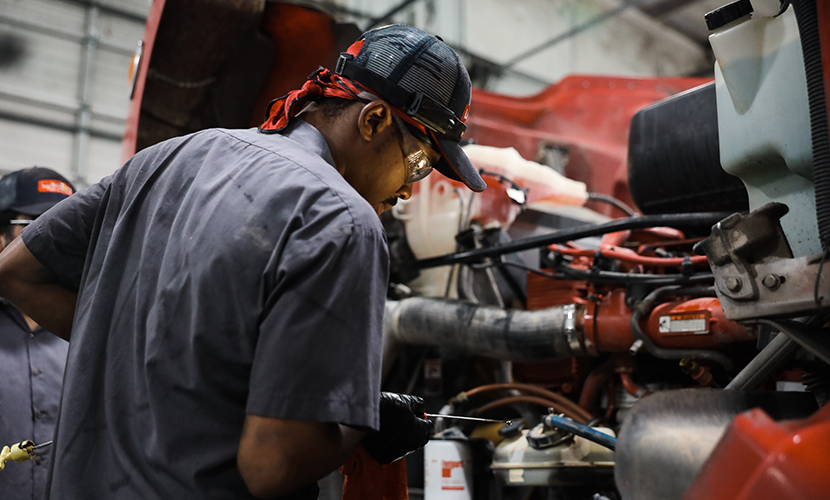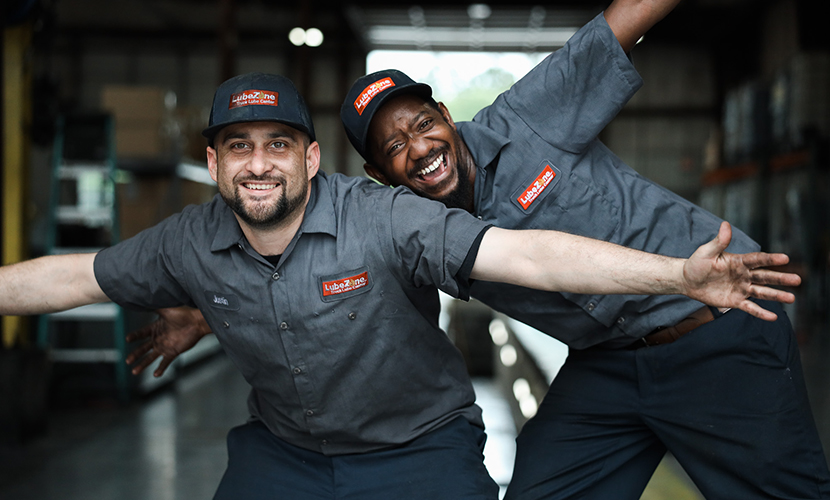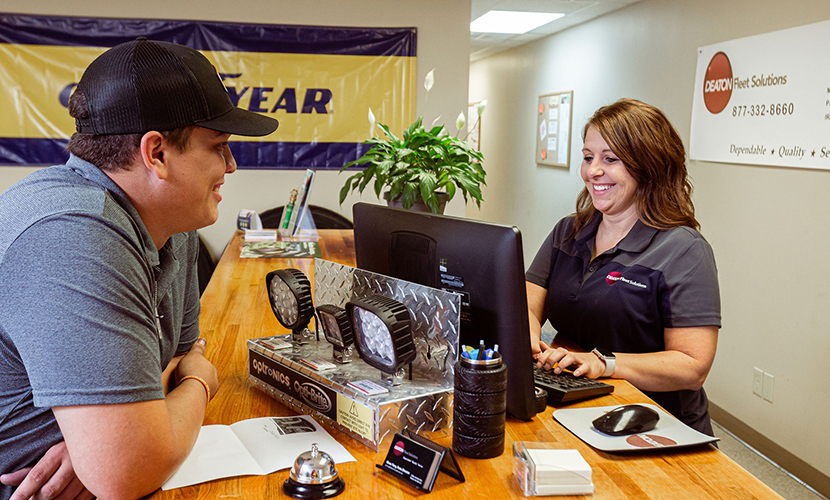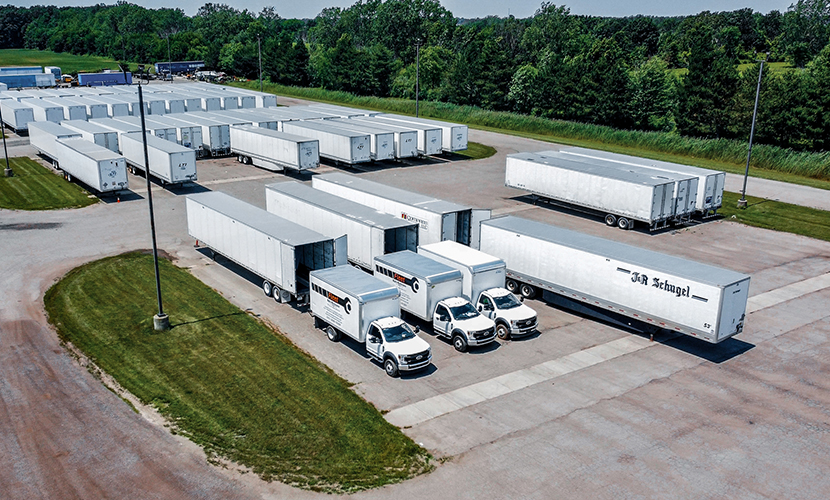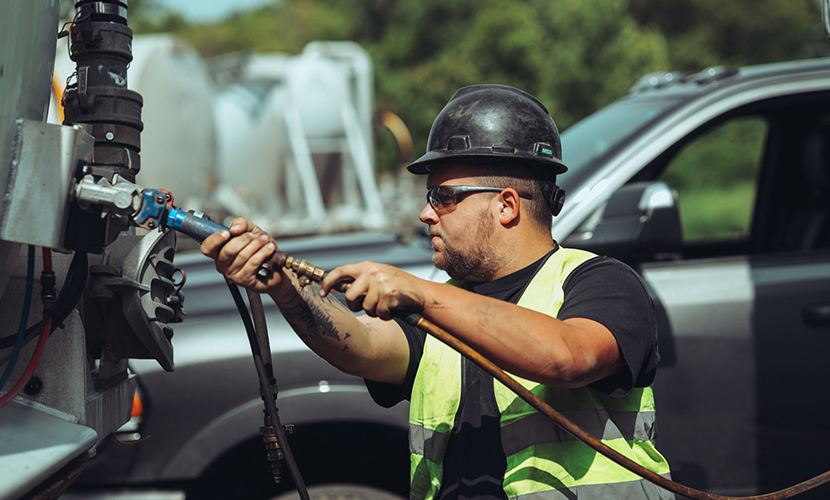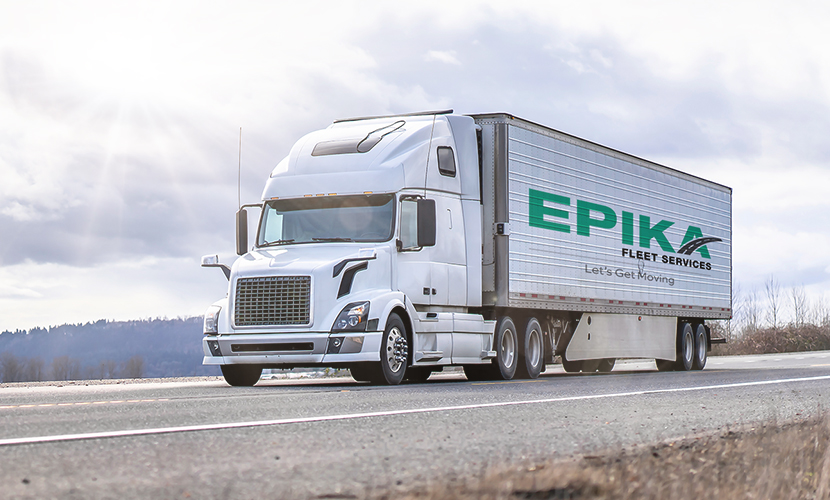6 Tips to Help You Grow Your Truck Repair Business in 2023
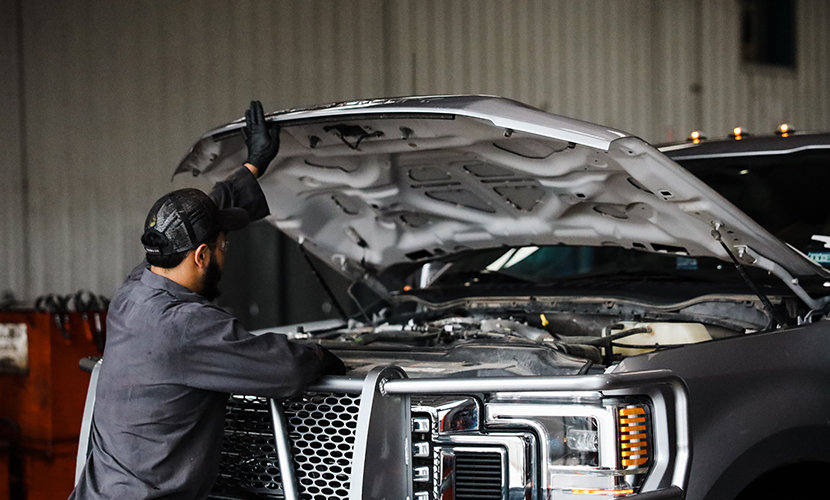
Fleet mechanics and truck repair businesses face ongoing challenges, but one of the most important is business growth. In order to provide the best possible service to the largest number of customers, you need to grow your truck repair business, but it can often be difficult to know how to stimulate that growth.
2023 and beyond is a time of opportunity but also a time of challenge.
- Economic growth and increasing domestic shipping means there’s a larger than ever demand for trucks and, consequently, the people to keep them in good working order.
- Companies looking to cut costs are switching to “just in time” or “breakfix” scheduling for maintenance, meaning that truck repair is less about routine maintenance and more about larger, more complex repairs.
- Increasing investment in green technologies, electric or hybrid trucks, and trucks equipped with more complex computer systems all means that the job of a mechanic is more complex than ever before.
- Many companies are shifting to prefer smaller, more local or regional repair companies rather than national chains, with the assumption that those smaller businesses are more reliant on their fleet business and thus provide better services and support.
- Truck and fleet repair businesses are more proactively marketing themselves rather than relying on word-of-mouth to grow; as such, competition seems fiercer than ever before, even if it’s not new players in the space.
If you operate a truck repair business, how do you navigate this landscape to grow your business without cornering yourself with high expenses, dissatisfied customers, disgruntled workers, and spiraling disasters? Here are our top tips to help you grow your business.
1: Work to Fight the Mechanic’s Stigma
The mechanic’s stigma comes from the reputation amongst people in general that mechanics are in a position of power, able to essentially fabricate problems in a vehicle and claim necessary repairs when no such repairs are actually required – or to claim repairs are performed without actually doing the work. While this kind of fraud does happen occasionally – often in consumer repair chains rather than fleet-scale shops – it’s generally quite rare.
All of this is on top of the current trend of reduced business trust.
“The rapid spread of misinformation, concerns over how online businesses collect and use personal data, and a deluge of branded content all contribute to a fundamental shift — we just don’t trust businesses anymore.
Consumers are also becoming more impatient, more demanding, and more independent.” – Hubspot.
The fact that such an opinion is prominent is a challenge. As a truck repair business owner, part of your job is to convince potential and existing customers that you’re one of the trustworthy businesses. As mentioned above, more and more fleets are turning to local and regional business groups rather than national chains, so smaller businesses may have a bit of an advantage here.
How can you strive to fight this negative reputation?
- Provide the best repairs you can, using high-quality parts, regardless of whether they’re OEM or aftermarket.
- Avoid unnecessary surcharges or added fees; repeat business is more valuable in the long run.
- Be responsive and communicative with any and all customers, potential customers, and others who may engage with your business.
- Whenever there’s a problem, do your best to make things right, even if it costs you.
- Promote transparency in service, in billing, and elsewhere throughout your business.
- Encourage customers to leave testimonials and reviews on your website, on social media, and on sites like the BBB; more visible, positive reviews help to encourage more customers.
The industry will always have a dark side attached to it, but by positioning your business as a trustworthy option in your service area, you can build a loyal customer base.
2: Invest in Marketing
Today, modern businesses often live or die based on the quality of their marketing. Truck repair businesses that rely on traditional marketing channels – like print ads, direct mailers, word of mouth, and TV or radio advertising – are going to struggle. Modern marketing requires the use of modern technology and channels.
Here are some examples of what you can do:
- Invest in your website. A well-designed website with a variety of features, such as live chat with representatives, online service and appointment scheduling, and even billing, can be extremely useful.
- Create and run (or outsource) a blog. Content marketing is a huge part of how modern marketing works. Whenever someone is searching for a nearby truck repair business, you want them to be able to find your website, and content is how you do so.
- Spend time on social media. You don’t need to be on 24/7 posting every single day, but you should post at least once per week and monitor messages and comments daily. You can also use social media to promote deals, proactive maintenance tips, and helpful information for drivers and fleet managers.
- Build local partnerships. For example, you could partner with a nearby café to provide free or discounted coffee and lunch to drivers waiting on their vehicles.
Unfortunately, the modern world of commerce revolves around good marketing. It’s not a practice that can be ignored if you want your business to grow.
3: Keep Your Facilities Staffed with Happy Employees
A truck repair business lives or dies based on the quality of the service it provides. Everything else, all the trappings of marketing and customer service, are only valuable if your core repair and maintenance services are solid.
Good repair and maintenance services can only be provided by content, happy, and satisfied employees. When you have service technicians handling oil changes, experienced mechanics providing unique repair services and diagnostics, computer specialists working with the onboard telemetry systems and GPS, and front desk employees keeping everything on track and running smoothly, you have a lot of people to keep happy.
To help keep your employees happy, you can do things such as:
- Track employee performance through useful metrics. For example, tracking how fast tasks are completed encourages cutting corners, but tracking the incidence of mistakes can be more relevant.
- Make sure your repair bays are kept as comfortable as possible, particularly in the hottest and coldest months.
- Provide positive feedback and regular showings of appreciation for your staff – not just your top performers – to encourage everyone to remain engaged with your operations.
- Maintain open lines of communication and feedback, and strive to make positive changes when necessary to improve the overall morale and job satisfaction of your staff.
- Keep an eye out for conflicts and toxic employees who might be making the workplace more difficult for others; a rockstar mechanic might perform well on their own, but if they make everyone else miserable, that value isn’t worth holding onto.
- Needless to say, providing appropriate pay rates, benefits, workload and hours flexibility, work/life balance, and so on is all critical.
Job satisfaction is a moving target. Often, you don’t even have to be perfect in every respect; you just need to demonstrate a willingness to take feedback and improve.
4: Improve the Customer Experience
Every part of the customer experience, from the moment someone is considering booking your services to the honeymoon period after they’ve received service but before they need it again, needs to be optimized.
Here are some examples of what you can do.
- Make communication as easy as possible through various channels, including phone, texting, web chat, email, and social media. Have someone available to monitor these lines of communication at all times.
- Provide a robust set of options for drivers dropping off trucks, including a stocked waiting area (or local partnerships as mentioned above), pickup/drop-off/shuttle services, and anything else you can use to add value.
- Provide customized and personalized reminders for appointments with all the relevant information, both during the lead-up to service and for routine maintenance reminders.
- Always be available to answer any questions, customize service to the needs of the fleet managers or owner-operators getting service, and provide transparency and problem-solving as necessary.
- Create and promote a customer loyalty program to give individual drivers or fleets additional rewards, discounts, coupons, added services, or other perks for coming back time and again. Whenever possible, apply this automatically so you don’t leave customers feeling bad for forgetting to apply it.
Don’t be afraid to make things right, even if it costs you. Salvaging a relationship damaged by a bad experience, such that you retain the customer, is more valuable in the long run.
5: Invest in Expanded Services
Growth means different things to different business owners. Too often, “growth” means the growth of revenue and profits, which end up funneled into the pockets of the owner and management. Unfortunately, this doesn’t actually grow a business. Employees who see workloads and revenue increasing but don’t see that revenue reinvested in salaries, benefits, or improvements to the business are going to lose morale and motivation to give it their all.
Always make sure to set aside some revenue to reinvest in improving the business. This might mean bonuses or raises for staff. It might mean replacing aging tools and machinery. It might mean purchasing new tools and machines to expand your available services or make existing services easier. For example, drones can help with 360-degree inspections, and more advanced computer systems can use truck telemetry for better diagnostics. Cameras can make in-depth inspections easier, and so on.
Managing a budget can be very complex, and you aren’t always going to have the perfect way to spend every dollar. The best you can do is consider the cost/benefit analysis for various uses for your revenue. Which is more likely to have positive returns: investing in marketing, in mechanic salaries, in hiring more staff, in purchasing new tools? There’s no one answer. Instead, you simply need to determine in the moment which will have the larger impact.
Remember the 80-20 rule; 80% of results come from 20% of your efforts. 80% of your revenue comes from 20% of your customers. Understanding the most important aspects of your shop and your business will help guide your reinvestment.
6: Expand Specialties
There are a lot of different ways you can take a core truck repair business and expand beyond the baseline services everyone expects.
Options include:
- Hiring technicians with training on specialized vehicles, like hybrids, specific brand ecosystems, or electric trucks. Many baseline shops can’t handle specialized vehicles, so adding the services grants you access to customers you otherwise wouldn’t have.
- Similarly, you can expand into heavy machinery. Diggers, movers, and other large machines require specialized knowledge but can earn you exclusive contracts.
- Provide more specialized seasonal services such as winterization or pre-winter inspections, more focused tire attention, and so on.
- Offer travel services within a service area. If a truck breaks down unexpectedly on the road, have technicians available to go out and work on it in the field or the equipment necessary to bring it back and fix it up.
- Offer the option to purchase and configure various aftermarket fleet tracking and telemetry systems, complete with software setup for the fleet manager if necessary.
There’s no end to the variety of services you can offer as long as you have the people with the training to offer them and the means to supply parts as necessary.
Consider Partnering with Us
Another option to help you grow your truck repair business is to partner with us. At Epika, we pride ourselves in working with over a dozen top brands across the nation to provide anywhere, anytime service to fleets, owner-operators, and more. Whether it’s emergency repairs, regular maintenance, or anything in between, we help provide those services.
We can’t do it without people like you. Operating a truck repair business is hard work, and you face many challenges, but with a partnership on your side, you gain access to many more contacts, resources, and options.
If a partnership sounds like a good option, you can read about the benefits and reach out to contact us here. We’re always happy to discuss the options, and if you have any questions, please feel free to let us know. We’ll gladly assist you however we can.

